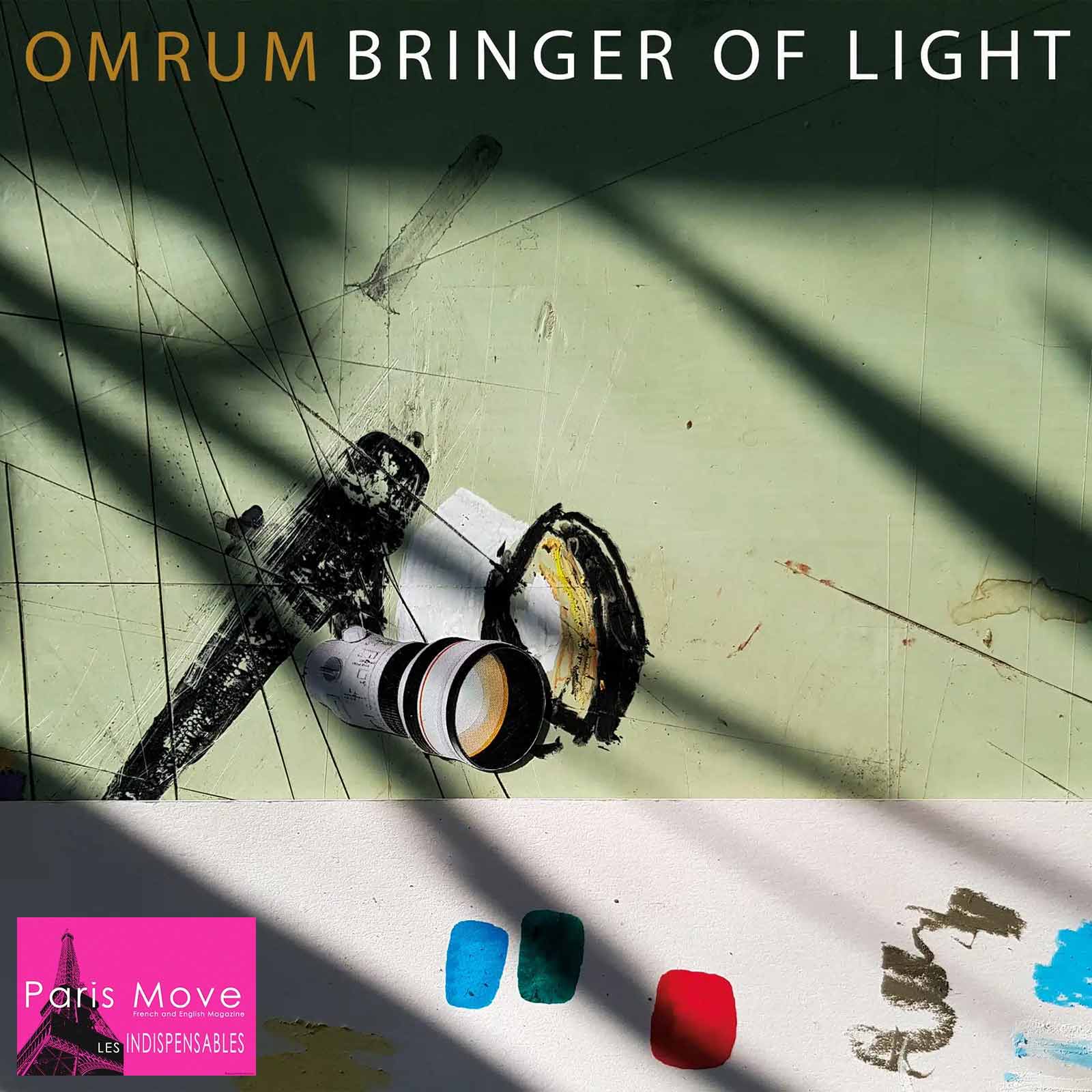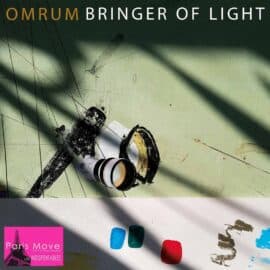| Jazz moderne |

There is a certain light that never completely goes out in northern Europe, a light that hovers even in winter, silvery and distant, reflecting off the sea. That same light seems to filter through *Bringer of Light*, the striking debut from Omrum, a Danish quartet that moves somewhere between modern chamber jazz and contemporary classical composition. From its opening moments, the record feels like a voyage, not only through sound, but through atmosphere and memory, as if we were being guided through a harbor town wrapped in fog, where the hum of ships and the creak of wood blend seamlessly with the language of improvisation.
Omrum belongs to a lineage of Scandinavian groups for whom genre is more a vocabulary than a boundary. The quartet draws deeply from the logic of classical music, structure, discipline, tone, but breathes life into it with the elasticity of jazz. What emerges isn’t fusion but coexistence: a music that listens to itself, alive to silence, tension, and the small movements between ideas.
By the second track, the pulse of jazz asserts itself, yet the clarity of form remains. This is the sound of musicians who have absorbed the full sweep of 20th-century music, Stravinsky and Ellington, Ligeti and Mingus, and who have made it their own language.
“Bringer of Light” was recorded over a winter weekend on the island of Møn, in John Fomsgaard’s Karmacrew Studio, a converted barn warmed by a wood stove. The setting matters. The four musicians recorded live, in one room, without headphones. No isolation booths, no overdubs. Just wood, warmth, and trust. The decision lends the record a tactile immediacy; the air feels close, the tones alive. If you listen carefully, you can even hear the faint crackle of the fire in the background, a detail that turns what might have been a pristine studio document into something intimate and alive, a session that breathes like a live performance.
And in many ways, “Bringer of Light” feels like a live album, only without the applause. The interplay between the musicians is so fluid, so conversational, that one forgets it’s all happening in the controlled environment of a studio. Each piece unfolds as a dialogue in real time, an exchange of ideas that grows and contracts organically. There’s a kind of quiet daring at work here — a refusal to hide behind density or volume. Instead, Omrum explores fragility, balance, and the invisible lines that connect four distinct musical voices.
The title track, “Bringer of Light,” distills the group’s essence: a slow emergence, a patient unfolding of tone and rhythm, where every gesture feels deliberate yet alive. There’s no rush to climax, no need to prove virtuosity. Instead, the music seems to search, not for resolution, but for presence. Elsewhere, other pieces move between stillness and propulsion, drawing from the same Nordic sensibility that has shaped so many of the region’s improvisers: an awareness of space, of weather, of sound as environment.
But one question lingers beneath the surface: is this really an exploration of the unknown? It’s tempting to think so, the music feels spontaneous, unbound. Yet there’s something deeply considered here, a sense that every improvisation is built upon years of shared thought and experience. The unknown, perhaps, is not what lies ahead, but how the familiar can be reimagined. Omrum doesn’t leap into chaos; they sculpt it, slowly, deliberately, like artists shaping clay. Their improvisations are not accidents but outcomes, the culmination of dialogue, practice, and a painter’s attention to tone and texture.
This isn’t music for casual listening. It demands attention, not because it’s difficult, but because it rewards openness. It’s music for those who want to hear what happens when four musicians trust both themselves and the silence between them. The reward is a sense of discovery, not of something new, but of something essential: communication without words, emotion without sentimentality, beauty without embellishment.
If “Bringer of Light” feels like a beginning, that’s because it is. You can sense the potential for evolution, the possibility that what starts here as improvisation may, on a future recording, take on a more composed form. The seed of collective writing is already there. Omrum plays like a band that has found not only a sound, but a shared philosophy: that music is a space of communion, a language that can be rebuilt each time you play. For now, this first chapter is more than enough, luminous, patient, and full of promise.
And if Northern Europe has taught us anything, it’s that light, once found, never truly fades.
Thierry De Clemensat
Member at Jazz Journalists Association
USA correspondent for Paris-Move and ABS magazine
Editor in chief – Bayou Blue Radio, Bayou Blue News
PARIS-MOVE, October 27th 2025
Follow PARIS-MOVE on X
::::::::::::::::::::::::
Musicians :
Erik Kimestad – trumpet
Mads Hyhne – trombone
Richard Andersson – double bass
Jakob Høyer – drums
Track Listing :
1. Intro
2. Blues for Teitelbaum
3. Intermezzo No. 1
4. Nobility
5. Paul’s Idea
6. Intermezzo No. 2
7. S/H
8. For the Love of Wisdom
9. Sand
10. Bringer of Lights

